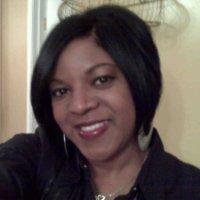
Tanya Stewart
Tanya Stewart is a seasoned recruiter and interviewer who has coached thousands of job seekers on how to effectively and confidently interview and get job offers. Her clients range from executive management to administrative assistants and everyone in between: attorneys, project managers, sales people, bankers, retail staff, customer service professionals, those with IT backgrounds, healthcare professionals, and many more. She recently spoke to the CareerSource NEFL Professional Network on how to prepare for a confident interview.
Stewart says that the first step in preparing for an interview is to conduct a thorough inventory of your skills and accomplishments. A sort of personal SWOT analysis: Strengths, Weaknesses, Opportunities and Threats. Knowing your strengths and weaknesses in a competitive market can help you prepare to answer tough questions in the interview. These are internal qualities, whereas Opportunities and Threats are environmental qualities. What outside factors might influence the market for your skills? Is your programming language of choice being phased out? Are you an early adopter of some technique or technology? Being aware of industry trends helps you position yourself within a larger context.
Next, Stewart says, you must learn to craft a compelling narrative about your core competencies. “What are you selling?” she asks. “How can you differentiate yourself from the other people in your industry who have done the same kind of work?” Learning to build stories into your interview preparation helps you add proof of your past success to your answers.
Strong preparation helps you remain cool under pressure in an interview. You’ll have the best of both worlds: a strong narrative you can advance, and poise that comes from knowing you can answer questions on the fly. Great improvisation or “improv” actors are skilled at staying in the moment and staying true to their character. In contrast to the process of memorizing scripts and delivering lines, improv frees you of self-consciousness and helps you get into a creative frame of mind. You’re free to experiment with your story, since your character and basic premise for the scene are established.
Tanya Stewart describes an interview like a first date: you have to be able to read signals from your interviewer, but the experience should also be reciprocal. You want to make a good impression, and at the same time, determine whether you want to take this relationship further. Does the company or the position merit a second date?
Stewart helps her clients read people and communicate better through a personality assessment developed by author Helen Fisher, who writes books about dating and relationships. Fisher has developed profiles of four distinct personality types: the Explorer, the Builder, the Director, and the Negotiator. Explorers are adventurous, passionate and energetic. Builders are conventional, cautious and good at following rules. Directors are analytical, tough minded, direct and decisive, while Negotiators are imaginative, intuitive, compassionate and socially skilled.
Knowing your type, and perhaps more importantly, knowing how to communicate with the other types, can make all the difference in how confident you feel and appear in your interview. For more information on Helen Fisher’s personality types and to take her quiz, visit this site: http://socionist.blogspot.com/2009/04/helen-fishers-types-explorer-builder.html
For information on Tanya Stewart’s coaching, visit: www.amoreconfidentyou.com

